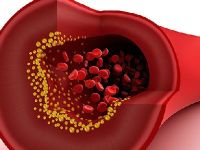University of Washington researchers have developed a new injectable polymer that can strengthen blood clots. PolySTAT is administered in a simple shot, finds unseen or internal injuries and starts to work immediately. The paper featuring the new polymer has been published in the March issue of Science Translational Medicine.
Many battlefield casualties die before they reach a surgical hospital. A large majority of them die from uncontrolled bleeding. Medics cannot do much in such circumstances because a tourniquet is not sufficient to stop bleeding from a chest wound. Clotting treatments require refrigerated or frozen blood products that are generally not available in the field. This new polymer has the potential to become a first line of defence in everything from battlefield injuries to rural car accidents to search and rescue missions.
The researchers have tested the polymer in rats and found that 100 percent of animals injected with PolySTAT survived a typically-lethal injury to the femoral artery. Only 20 percent of rats that were treated with a natural protein survived.
“Most of the patients who die from bleeding die quickly," said co-author Dr. Nathan White, an assistant professor of emergency medicine who teamed with UW bioengineers and chemical engineers to develop the macromolecule. "This is something you could potentially put in a syringe inside a backpack and give right away to reduce blood loss and keep people alive long enough to make it to medical care," he said.
The polymer was inspired by factor XIII, a natural protein that helps strengthen blood clots. PolySTAT like factor XIII strengthens clots by binding fibrin strands together and by adding cross-links that reinforce the latticework of the natural bandage. However, a major difference between factor XIII and PolySTAT is that PolySTAT offers greater protection against natural enzymes that dissolve blood clots. These natural enzymes help during the healing process but can also work against doctors who are trying to keep patients from bleeding to death.
PolySTAT also offers advantages over conventional haemorrhaging treatments. Blood products are often expensive and require careful storage. They can grow bacteria or carry infectious diseases. A patient's body can also have unintended consequences during a transfusion.
It has been observed that after a traumatic injury, the body begins to lose a protein that is critical to forming fibrin. However, PolySTAT strengthens clots even if the fibrin building blocks are critically low.
The initial safety profile of the polymer looks quite promising. The researchers feel that the next steps should include testing it on larger animals as well as use additional screening to determine if it binds to any other unintended substances. The polymer is also expected to be investigated for its potential for treating haemophilia and for integration into bandages.
Source: University of Washington
Image Credit: Wikimedia Commons



























